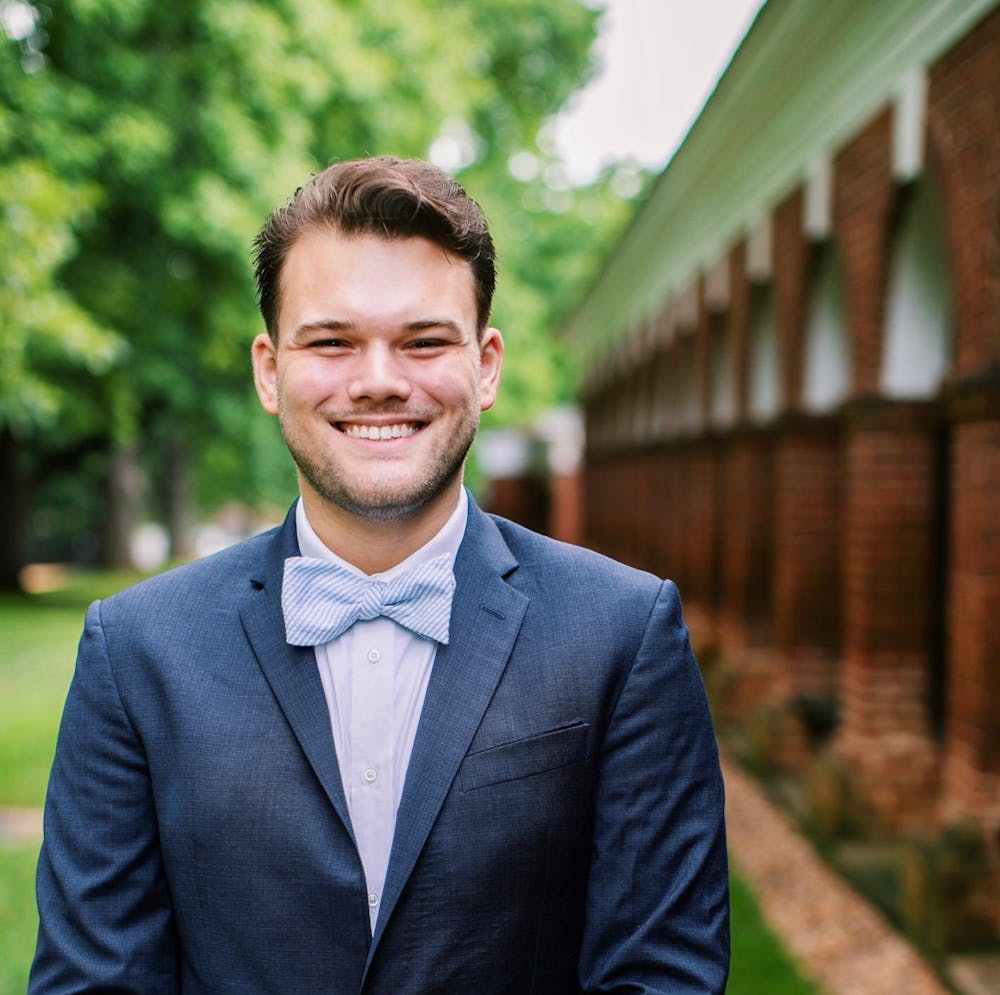I won the University’s great game. I drank the kool-aid and bought-in to the mysticism of student self-governance, secret societies, Lawn rooms and Thomas Jefferson. I excelled academically, locked-in the internships and won the leadership positions in student organizations — at times through less-than-admirable means. I’ve been “canceled” on Twitter — somehow from both the left and right — more times than I bother to remember. As a reward for all this, I got a Lawn room. So now, as a fourth-year in the twilight of my time on Grounds, what do I have to say?
I echo the words of my orientation leader from the summer before I began my journey as an undergraduate here — “it is not that deep.”
Student self-governance is a hallmark of the University — perhaps even its defining feature. Students, on paper, have the power to overhaul their curriculum, approve new student organizations and oversee the disciplinary actions against their peers. Such unique power prompts many starry-eyed high school students — myself included — to accept their offer of admission and enroll at the University. Once you strip student self-governance of all the pomp and circumstance, it really is not as serious as we make it out to be.
Student Council was once a force to be reckoned with at the University — doing everything from building libraries to shutting down classes in solidarity with the anti-war movement of the 1970s. During the 2021 election cycle though, the organization finally admitted the truth anyone involved with it has always known — “We are not governing, we are bargaining.” A powerful statement meant to signal the collective power of students, these words demonstrate that Student Council’s self-governance is questionable at best. Its $184,000 budget is subject to modifications — or outright rejection — from the administration’s Student Activities Committee. Its club recognition process is easily overridden by the University. “Bargaining” in this sense is a misnomer — a branding word that does not actually reflect reality. Student Council and its members are neither governing nor bargaining — they are functionally unpaid University interns.
Elsewhere on Grounds, the Honor Committee’s recent scandals are the most obvious examples of the superficiality of student self-governance. The Committee this year was marred by allegedly corrupt election proceedings and the cancellation of its remaining Committee meetings following a stinging referendum loss by its chair. Faced with challenges, the Committee essentially flung its hands in the air and quit. This only adds to a long history of Honor’s dereliction of duty, including failing to quickly respond to nationwide racial justice protests and repeated inaction on its disproportionate expulsion of low-income, international and non-white students.
Yet, the hard truth is that the decay of student self-governance is a good thing. At the end of the day, student self-governance is a hobby we take with overly aggressive seriousness. Student organizations — even the most historic — are college clubs. At times, they do very important work to support students, but they are ultimately sources of unpaid labor the University exploits to save money and draw in prospective students. Efforts to pay student leaders are noble but ultimately unconvincing — each Student Council administration I have seen has tried, and none have succeeded. Even so, the only way to truly restore self-governance is an unequivocal and all-encompassing demand to the University administration — we will not participate unless we have true jurisdiction over the University’s affairs, free from administrative influence. In this sense, a general strike of all student leaders and workers is required.
Student activism, distinct from self-governance in its freedom from administrative oversight or influence, is alive and thriving. Students rally for higher wages for faculty and staff, for divesting from the fossil fuel industry, for Black and trans lives and so much more. This work is vitally important to the continued health of the students and community members of the University, and I greatly admire the students dedicating their time and energy to such important causes. Power is not held by Student Council, the Honor Committee or any other organization that conducts work on the University’s behalf. Power is held by the students of the University and their grassroots work.
The Cavalier Daily plays an essential role in spheres of both student self-governance and student activism. Even if student self-governance has lost its meaning and power over the decades, the students at the helm must still be subject to scrutiny from the University community — especially when their work concerns organization funding and student discipline. The Cavalier Daily in this sense serves as a check-and-balance, ensuring that organizations follow their codes of ethics and act in the best interests of the student body. Moreover, the paper provides a voice to student activists — it gives them a platform to voice support for University initiatives or highlight unsatisfactory conditions on Grounds. As such, the protection and advancement of independent student journalism on Grounds is imperative.
Despite all efforts to defend student self-governance, we must recognize it is a scam. It is one of the University’s oldest and greatest lies — it ropes students in with promises of honor and prestige, only to extort them for free labor and feed its PR behemoth. The sooner we all recognize we are pawns in the University’s game, the better off all of us will be. Enjoy your college years. Do not fall for the mysticism of student self-governance. Do not drink the kool-aid.
Noah Strike was an Opinion Columnist and served one semester on the Editorial Board.







